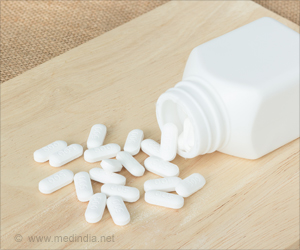Lopinavir and Hydroxychloroquine do not work on COVID-19 because the concentration of both these drugs in the lungs of patients are not sufficient to fight the infection. Systemic inflammation caused by COVID-19 inhibits the drug metabolism.

‘COVID-19 infection inhibits drug metabolizing enzymes (cytochrome P450 3A) by causing systemic inflammation. Drugs with a narrow therapeutic index such as Lopinavir or hydroxychloroquine can lead to drug toxicities in COVID-19 patients.’
Read More..




In February 2020, a Covid-19 patient cohort was established at the University and the University Hospital in Basel to prospectively monitor a range of diagnostic means and potential treatments for Covid-19, including the off-label use of hydroxychloroquine and lopinavir/ritonavir.Read More..
A research group prospectively monitored lopinavir plasma levels in Covid-19 patients. "Considering that substantial inflammation was observed in these patients, and previous studies have shown the inhibition of drug metabolism by systemic inflammation, we had the rationale to investigate the effect of inflammation on lopinavir and hydroxychloroquine plasma levels," states Professor Catia Marzolini, first author of the study and professor for experimental medicine at the University of Basel.
The authors included 92 patients in their study. Professor Parham Sendi, who is the co-leader of this study summarizes the main findings as follows: First, lopinavir plasma levels were more than two to threefold higher than typically observed in HIV patients. Hydroxychloroquine levels were with normal range. Second, there was a significant correlation between the inflammation marker levels in the blood and lopinavir plasma levels. Third, when the inflammation was blocked with the Interleukin-6 inhibitor Tocilizumab, lopinavir plasma levels were significantly lower than the ones in patients without Tozulizumab treatment.
These results clearly indicate that drug metabolism enzymes (cytochrome P450 3A) are inhibited by systemic inflammation. "Caution is advised when prescribing CYP3A4 substrates such as Lopinavir/ritonavir or any other drug with a narrow therapeutic index to Covid-19 patients because of the risk of elevated drug levels and related toxicities," the authors state.
Importantly, from the lopinavir and hydroxychloroquine concentrations in the plasma, the study group calculated the corresponding concentration in the lung compartment - the anatomic site of SARS-CoV-2 infection. The results strongly suggest that it is unlikely that both drugs reach sufficient concentrations to inhibit the virus replication in the lung.
Advertisement
Source-Eurekalert









